"90% of the world's languages are not in schools"
- American linguist Suzanne Romaine claims that all children learn in their own language. He has denounced that millions of boys and girls are schooled in a language they do not understand, so the doors of school are closed. Without education, there is little chance of life progressing. A conference was held on 15 December at the European Forum on Linguistic Diversity in Donostia-San Sebastián. The two-day forum took place between Donostia 2016 and UNESCO Etxea. After the talk, we interviewed the linguist.
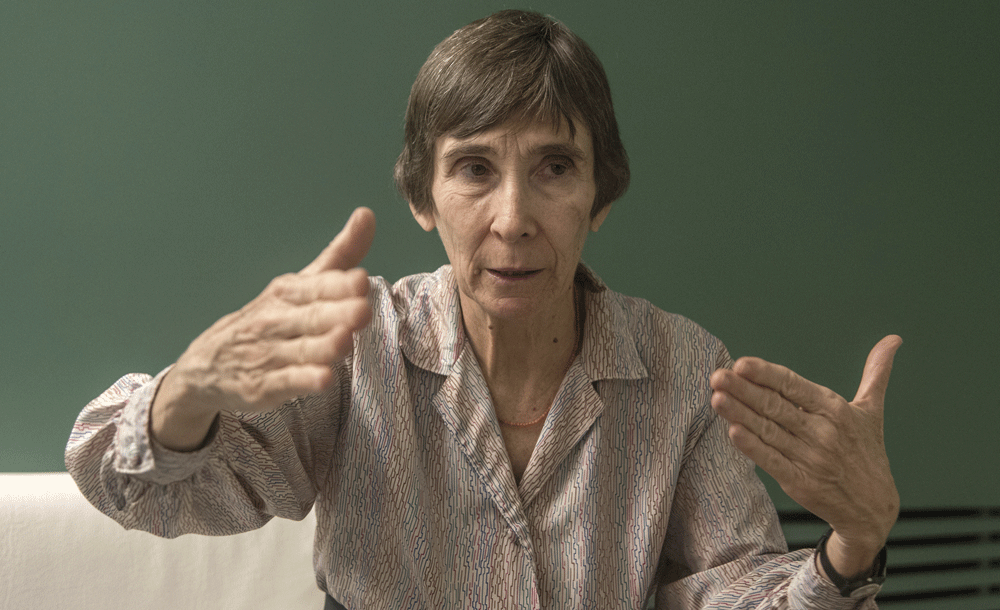
You said that there is no development without linguistic diversity.
That is not exactly the case. There is no real development without the development of languages.
And what is real development?
Development that empowers. People are not passive recipients of aid coming from outside, people are involved in their development, citizens can argue with those who help them. Let me give you an example: most international development agencies and non-governmental organisations do not learn local languages. They try to meet people, but they only communicate with international language speakers. If we talk about African countries, most of the time they partner with men. If you don't speak your language, how will you join poor women, women with five children who want microcredit in India or in Africa? How can that woman communicate what she wants? That is what I meant by reference to real development. People can discuss their situation with strangers in their mother tongue, not through translation.
Do you really believe that NGOs take minority languages into account?
I believe that some have good intentions, but they do not understand the situation in the languages of the world. The example is the earthquake in Haiti. It's officially spoken in French, but 90 percent of people don't speak French. Those who suffer most in such disasters are always the poorest of the poor, those who live in rural areas. So what do you do talking to them in French? In Africa, it's like doing it in English or French. If you're going to go to citizenship, you need to speak in your language. Translators Without Borders are doing incredible work. Some non-governmental organisations are working very well, others not so well.
At the conference, you've shown a photograph. In a t-shirt worn by a young man, he speaks English about the subject of AIDS. If you don't do it in English, isn't it surprising that you have information in English?
“Most international development agencies and non-governmental organizations do not learn local languages”
Many languages of citizenship are not read. You have to do radio shows, puppets or theaters at school to transmit information, you have to be an inventor in the forms of communication. You can put a great written symbol, but it makes no sense to the citizens.
A study by Doctors Without Borders points out that communication was the biggest problem in the Ebola crisis. They say that the crisis would have ended sooner if people had realized communication problems. The problem is tremendous if the institutions do not realise this obstacle.
The same is true of the refugee crisis in Europe. Most of them come from poor communities and many speak minority languages. How will he explain to them what their rights are? Here's the example of the Calais rainforest. Some of the refugees who have taken refuge in the area have relatives in the United Kingdom. According to international law, some of them would have the right to access the area, but there was no one to explain to them such a possibility. More of those who would have left could travel to the United Kingdom.
So I mentioned to you the development that before it empowers, if you had come to the sites and asked what language you speak, if you had been told in your language what your rights are, the result would have been different. It's not easy, that's also true. That is why I say that language is the key to development.
Why is education so important in relation to minority languages?
Education is a key to everything, isn't it? How will you learn in school if your language is not taught?
At home…
Sometimes even their parents don't understand the language their children use in school. How will the child learn to read? If you don't learn how to read, how will you learn something else? Many boys and girls try to learn to read, but when they see that they can't, they leave school.
There are studies that say that boys and girls stay longer in school if they learn their mother tongue. It makes all sense. How are you going to learn if you don't understand the language of school?
90% of the world's languages are not in schools. It's a terrible number.
I've studied 30 years at Oxford University, and I've had a lot of students who speak minority languages. However, most were English and have studied English at school. My mother tongue is English and the classes were in English. I believed that everywhere the same thing happened, that people studied in their language at school. The students were surprised when I told them what's going on in the world. What would you learn if I had to speak in Basque at school? I wouldn't understand it. Hundreds of millions of people speak these languages at home, on the street, but not at school. Not applicable.
"I'm talking particularly about indigenous people. They speak most of the world's languages, they are among the poorest in the world."
Is there a good example in Africa?
Ethiopia. They have moved from teaching in a single language (Arabic) to using minority languages. In addition to local languages, they use Arabic and English. Unfortunately, most schools in Africa are trying to introduce English as soon as possible. It's not good. They think that children need an international language, and they think it's better to start teaching as soon as possible. So you will never learn, you have to have your base in the mother tongue first. They will then add other languages.
You made a direct link between poverty and minority languages.
Of course. I am talking about the poor because it is the poor who speak the majority of minority languages. I am referring in particular to the indigenous people. They speak most of the world's languages, they are among the poorest in the world. Either they do not have a state, or they live in a state that does not tolerate them, or they are banned directly from the language, or they are exploited by the natural resources of their territory.
Yes, there is a direct relationship. I do not mean that speaking minority languages creates poverty. There's a relationship. If people don't have a chance to learn, if they don't go to school, what are they going to do? It's a cycle and it repeats itself. They have no chance of getting out of poverty.
I insist, it is not a question of speaking minority languages bringing poverty, because that argument is used by some. Those who argue in this way say, for example, that English and French must be taught in order not to be poor.
The UPV/EHU Palestine was born with the aim of breaking with all Israeli companies and institutions that are carrying out and working with genocide in Palestine. Israel’s impunity comes from its political, military, economic, scientific and academic relations in Europe and the... [+]
Many times, after looking at the brumas from my house, it has occurred to me not to catch umbrellas, even though I know I will just soak up. Why will it be? Maybe you don't want to catch the umbrella? Maybe in the hope that I don't get wet? Nevertheless, the conclusion has always... [+]
In Sociology of Education there is a classical question: Why does the education system exist in a society? The answers to the question are numerous and change according to the time. But among them, it should be noted that the main objective of the school is the creation of... [+]













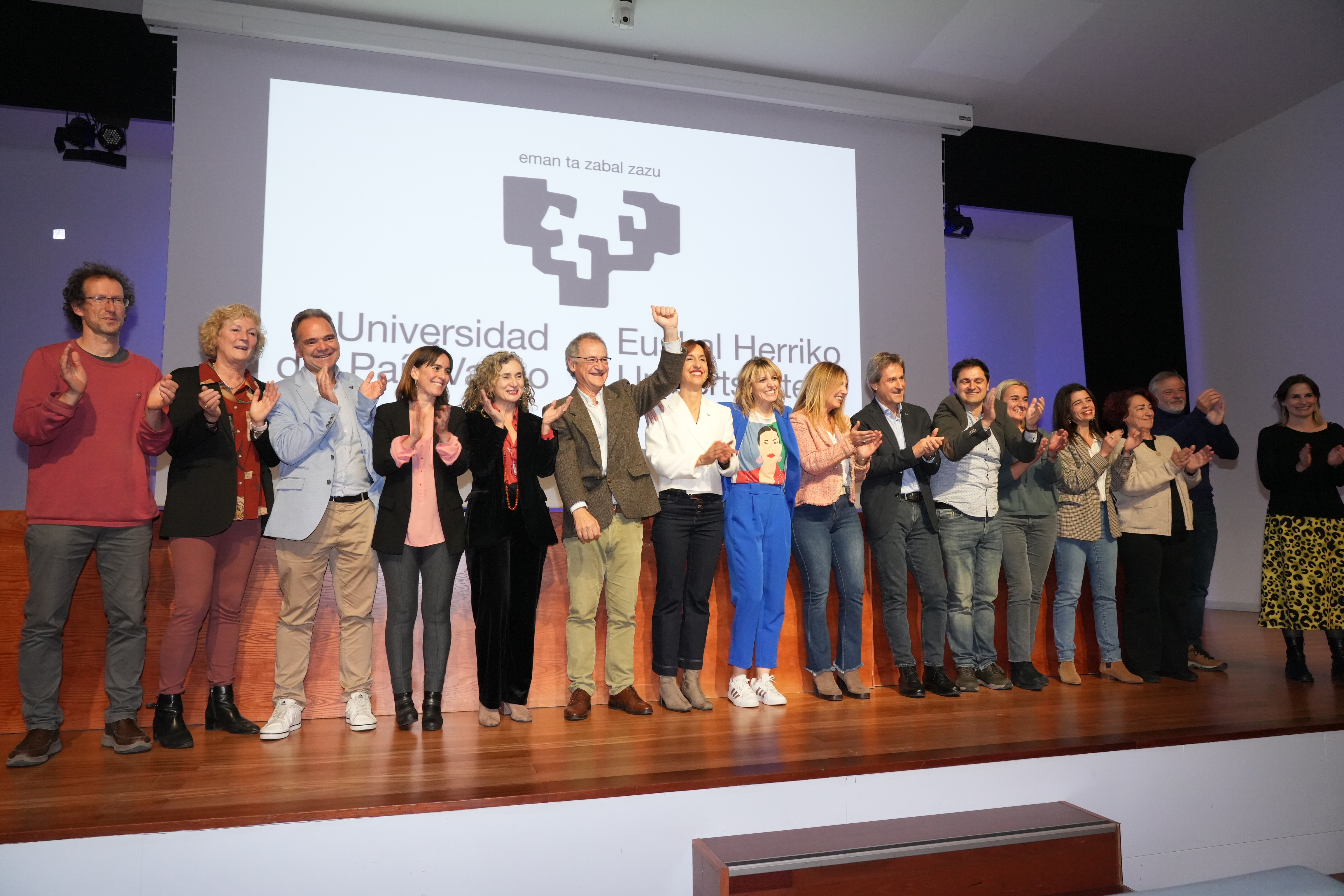
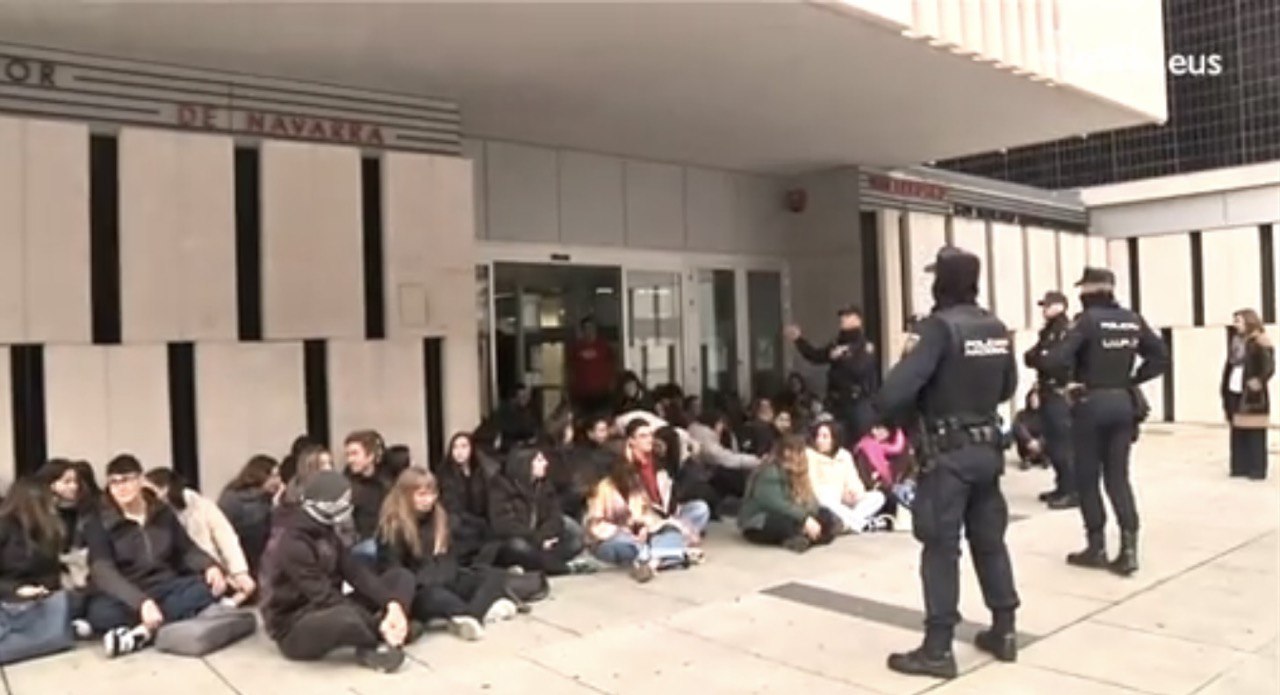

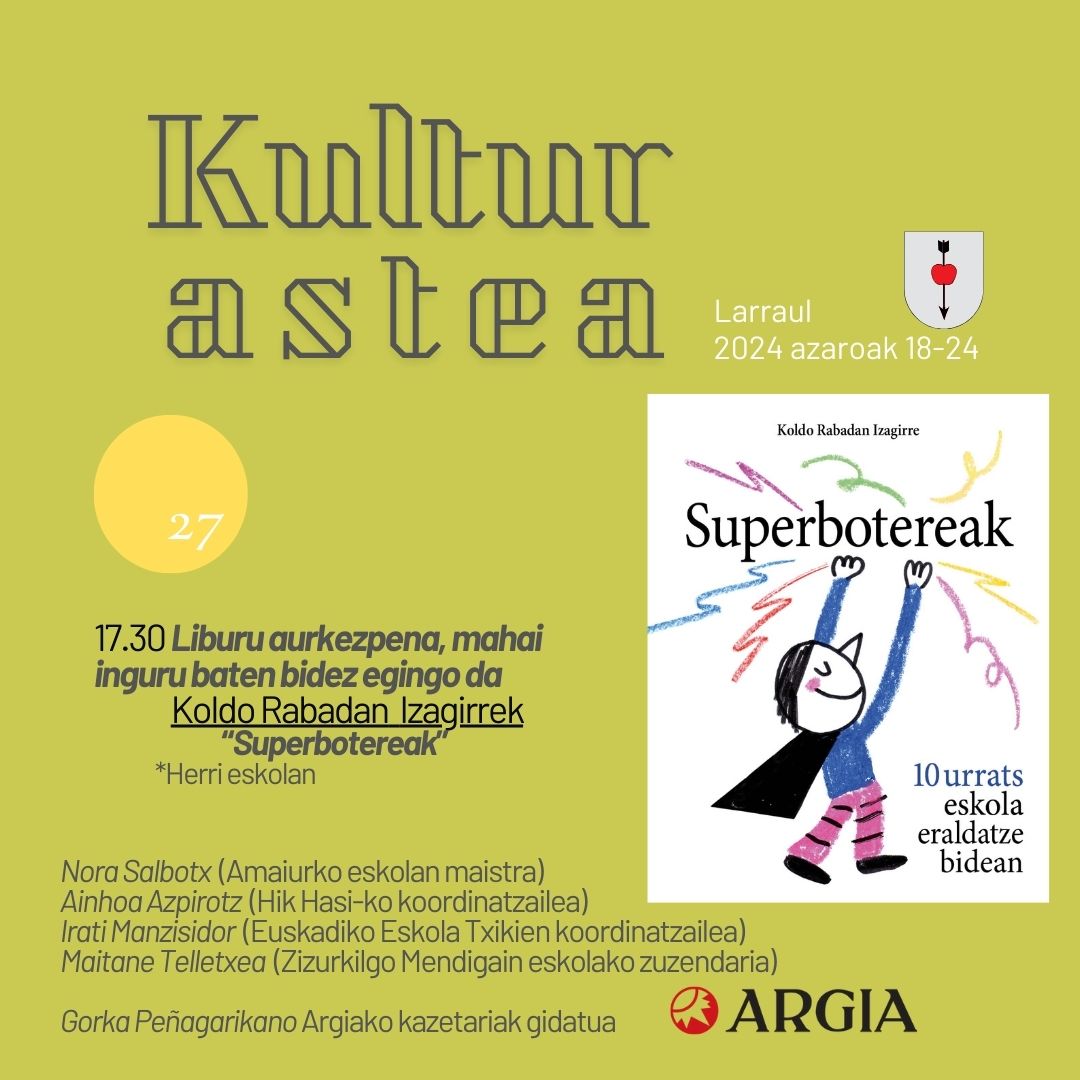


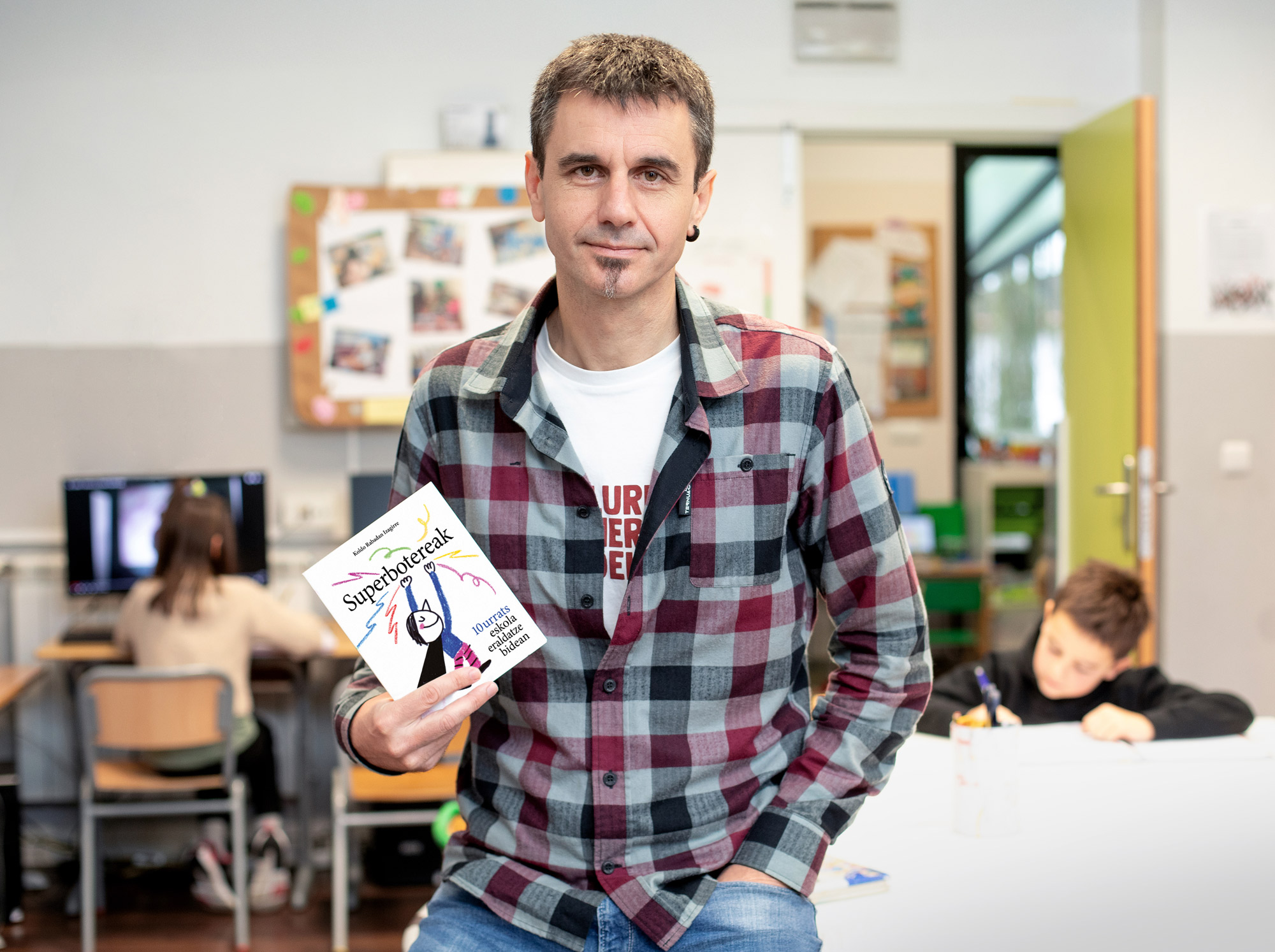



.jpeg)